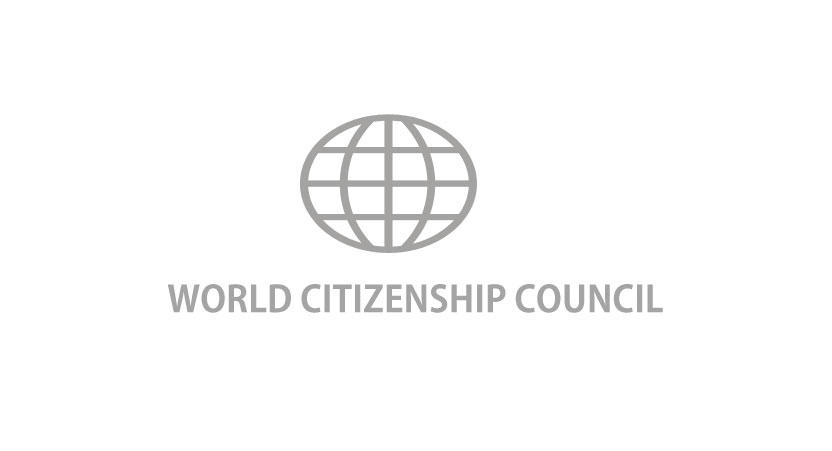by World Citizenship Council (WCC)
Due diligence is the heart beat of the CBI/RBI industry, yet it is often misunderstood and the process is little known to general public.
Many who apply for citizenship by investment (CBI) and Residence by Investment (RBI) schemes simply do not know about the due diligence checks. Some completely have no any idea about the stringent checks involved, automatically assume acquiring citizenship is just too easy! Simply explaining the stringent vetting process involved, will scare away high risk applicants, thus saving money, time, and from negative press and publicity against the industry.
CBI and RBI schemes have provided new life to countless number of families and children.
Modern day criminals are becoming increasingly smart, simply they cannot be underestimated. Fleeing offenders plan well ahead of time obtaining CBI passports. Economic offenders pose a high risk to the integrity of the CBI schemes. This is where due diligence fails.
CBI agents form the first line of defence protecting the integrity of the CBI industry.
Agents upon receiving first applications., must conduct the preliminary due diligence checks on applicants (including all dependants) before submitting the file to governments which are then scrutinised further
CBI Agents
Citizenship agents must exert caution with applicants and constantly look out for red flags with applicants.
Attracting a high risk clients will damage the reputation of firm with CIU (Citizenship Investment Units). High application refusal rate from an agent will lead to revoking license.
Follow these Golden rules
- First check why a client is seeking second citizenship or residency. Look for genuine reasons. Chances are they are hiding something and running away from law enforcement.
- Agents upon receiving applications., must conduct the first preliminary due diligence on applicants (including all dependants) before submitting files to governments. Check for visa refusals, sources of income, business activities. If need be engage the services of third party due diligence firms (Exiger, S-RM, Bishops etc)
- Do not accept clients from countries hit by embargo or US/EU sanctions. You may check with the OFAC database which lists sanctioned individuals and companies and certain banks
Red flags
Watch out for these red flags, needs a closer look.
- Visa refusals : Visa refusals are considered high risk for CBI programs, deserves a closer look on why visa was denied by the consulate. CIUs may refuse citizenship applications, because of the visa waiver agreements. Check for visa refusals and ESTAs from United States, United Kingdom, Canada, Australia, EU member states.
- Name Change: Change of name needs a closer look.
- Rush in applying for citizenship: Some clients show a sudden rush in applying for CIPs, which is a potential red flag. They deserve a special attention.
- Lack of documentation such as inability to obtain police certificates, which is needed from every country they have lived in the past ten years.
- Strange or nervous: Some clients exhibit strange behaviour or become nervous when you ask uncomfortable questions.
- Real estate: Look closely for specific clients who interest in real estate in exchange for citizenship. Typically real estate investments involve large sums of money, chances are money laundering is involved.
Basic Due Diligence
The following are some of the important basic due diligence checks CBI agents must do:
- Know Your Customer (KYC): Thoroughly check all the application documents of main applicant including all family members. Birth certificate, marriage certificates are the most important documents, must be authenticated with Apostille. Any inconsistencies must be checked with the nearest embassy/consulate.
- Know Your Customer Customer (KYCC):For companies and businesses, check all the corporate documents, licenses, financial statements and do a KYCC on customers of the company (invoices etc). Entities operating from offshore jurisdictions needs a closer look. Must check the company status from online company registrar databases such as Dun and Bradstreet (DNB) or Kompass.com.
- Dependants cannot be underestimated. Look closely on their backgrounds
- Provide a report on the findings of the due diligence review (due diligence report) from internationally recognised electronic databases, for the use of which a fee is payable (e.g. World Check, LexisNexis Diligence, Regulatory Data Corp Inc, etc). The report must be dated no later than thirty days from the date of its submission.
- Passports: Check the passport stamps and visas to see where he has traveled (any high risk countries from US travel ban?). If he is a dual citizen, check the Place of Birth (POB) in all passports. This field never changes, no matter where he lived or acquired different passports.
- Sanctions: There is a high risk accepting CBI applications from countries hit by OFAC sanctions, EU sanctions. Check with CIU’s. You can cross check individuals and entities from sanction databases. OFAC maintains a database here
- Online and Social media checks: Your client could just be a high profile client or HNWI. Do a quick google search on your client, look through social media such as twitter, facebook and linkedin.
- Anti-Money Laundering (AML): Verify the sources of funds from the customer, such as bank statements, investments, inflow and outflow of funds between countries. According to Basel AML Index, Iran and Afghanistan are top high risk countries.
- Bitcoin: Do you accept Bitcoin? If yes, your clients must adequately prove legitimate source of coins. Chances are bitcoins could have been acquired by hacking, stealing or could come from high risk sanction countries such as North Korea, Iran or Venezuela.
Sanctions
Agents by all possible means should avoid any or all high risk clients with red flags to save money and time
These could be shady clients with dubious background. Do not accept clients from countries which are hit by US travel ban and OFAC sanctions (Iran, Venezuela, North korea, Afghanistan, Syria, Somalia, Libya, Yemen). The US government warns funds from sanctioned countries flow into their financial system, failing which subjected to US law enforcement.
Any transaction in US dollars, regardless of where it is transacted across international borders, flows into US financial system. High risk transactions risk corresponding bank relationships with US banks.
Enhanced Due Diligence (EDD)
If you suspect the client is high risk, then they should be subjected to EDD. Enhanced due diligence (EDD) must be applied for high-risk customers. All politically exposed persons (PEPs) must be subjected to EDD
EDD checks clients posing a higher risk because of the customer’s business activity, ownership structure, anticipated or actual volume and types of transactions, including those transactions involving higher-risk jurisdictions.
Look closely on
- Purpose of applying for second citizenship.
- Source of funds and wealth.
- Individuals with ownership or control over the account, such as beneficial owners, signatories, or guarantors.
- Occupation or type of business (of customer or other individuals with ownership or control over the account).
- Financial statements.
- Banking references.
- Domicile (where the business is organized).
- Proximity of the customer’s residence, place of employment, or place of business to the bank.
- Description of the customer’s primary trade area and whether international transactions are expected to be routine.
- Description of the business operations, the anticipated volume of currency and total sales, and a list of major customers and suppliers.
- Explanations for changes in account activity.
Application Refusals
The following are the most common reasons for citizenship refusals.
- Failing due diligence check done by CIU unit of Government.
- Citizenship application previously denied by a CBI country.
- Failing background check by the due diligence agencies
- Blacklisted by Interpol or other law enforcement agencies.
- You providing false information or lying in your application
- Threat to national security of the country.
- Previous criminal record.
- Previous entry visa or residence permit denials.
- Nationals of blacklisted country hit by sanctions or trade embargo (Sudan, North Korea).
- Risk of money laundering or failing AML check. Failed to provide evidence for source of funds or source of funds originated from country with sanctions.
- Reputation risk by Politically exposed persons (PEP).
- Applicant has ties to terrorism.
- Deported from a country.
- Failing health or medical checkups.
- Conflict of Identical names with criminals or blacklisted person.
- Insufficient income or unable to financially support family members.
- Involved in money laundering, financial crimes in other countries.
- Alert issued in Schengen information system (SIS)
- Providing false information about visas issued by United States and Canada.
- Found to be Involved with SEC fraud in the United States
- Found to have extradition case filed by a country.
- Found to have involved in personal or corporate bankruptcy.
- Found to have involved with civil actions pending against you in a court or threatened by creditors.
- Found to have applied for citizenship in another country and denied.
- Previous convictions of family members.
- Civil proceedings or offences in a country
.
About World Citizenship Council (WCC)
World Citizenship Council (WCC) is a non-profit organisation and worldwide association of citizenship professionals for research, development and promotion of the citizenship and residence by investment schemes (CRBI) throughout the world. Other migratory issues such as citizenship, residence, statelessness, migration, refugees, human rights, taxation, and dual citizenship will also be on the forefront. The council is a startup in initial stages of development.
The council brings industry experts connecting governments, associations, due diligence firms and law firms and professionals to address migratory issues.
Council membership is FREE to register.
WCC has also published code of ethics and conduct which is available here
Please visit http://worldcitizenshipcouncil.org






